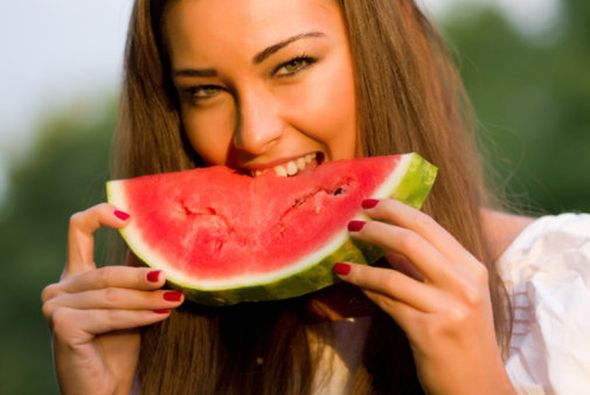The heat is on, so you’ve probably got your water bottleout. And that’s a good thing. “Every single cell in your body needs fluid to function properly,” says Angie Eakin, MD, a family medicine physician at Barnard Medical Center in Washington, D.C. “That’s why even milddehydration can make you irritable, foggy-headed, and headachy.” But while it’s smart to keep sipping, especially when it’s hot and humid, a lot of conventional wisdom about hydrating is just plain false. Read on for the eye-opening scoop.
Fact: Not if you eat a healthy diet
Once upon a time, we used to have some water just to wash down a meal. But these days, we’re encouraged to drink all day long, on the premise that we’ve secretly been walking around like parched zombies. Not so, says Barbara Rolls, PhD, a nutrition professor at Pennsylvania State University. The truth is, moisture in food contributes about 20 percent of the fluid you need. So if you avoid “dry” foods like heavily processed crackers, fill up on fruits and veggies and drink when you’re thirsty, you should stay well hydrated, even if you’re not chugalugging, explains Rolls.
Bottom line: Eating a diet packed with produce helps prevent dehydration throughout the day. Some super-hydrating choices: cucumbers (97 percent water), cauliflower (92 percent water), spinach (91 percent water) and strawberries (91 percent water).
Fact: Your body knows the difference
The thinking here is that you’re apt to dive into a big bag of M&M’s when what you really need it to swig H2O. Reality check: Snack attacks are usually due to any number of reasons (boredom, habit, stress) besides thirst. In fact, “studies in animals show that being thirsty may actually make you eat less during the day,” says Rolls.
You’re unlikely to mix up true thirst and hunger because the sensations aren’t even similar. “They feel different and are regulated by separate mechanisms in your body,” says Rolls. When you’re low on fluids, your cell and blood volumes decrease, and you get an unpleasantly dry, tacky-feeling mouth. Hunger, on the other hand, is driven by gut hormones, nutrients and glucose, and it’s heralded by stomach rumbles and a sensation of emptiness.
Bottom line: Look out for the thirst and hunger cues above, and drink or eat up as needed. (And if what you’re really feeling is boredom or stress, take a stretch break or watch some kitten videos instead.)




